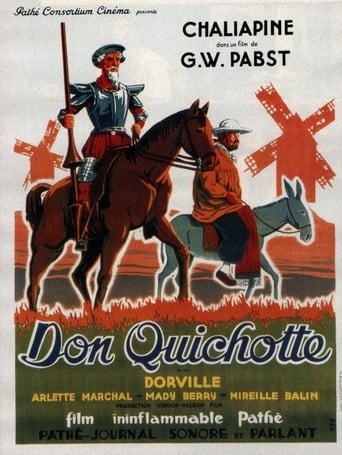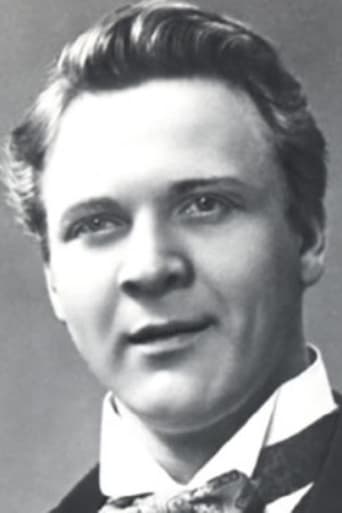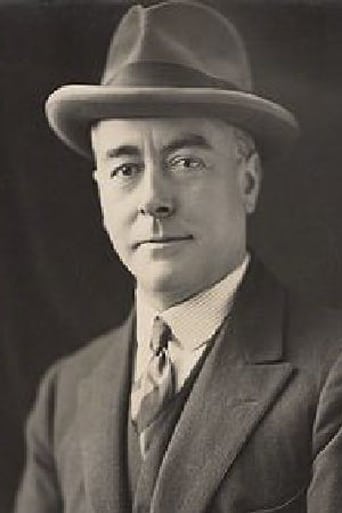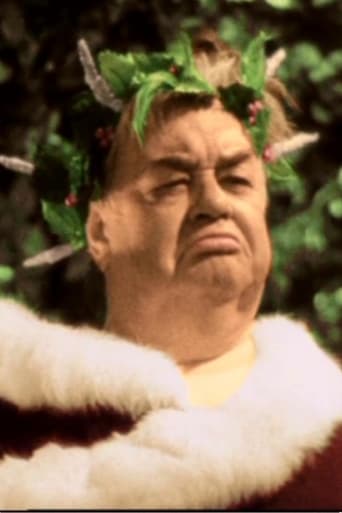

Don Quixote (1933)
In sixteenth century Spain, an elderly gentleman named Don Quixote has gone mad from reading too many books on chivalry...
Watch Trailer
Cast
Reviews
Save your money for something good and enjoyable
It's the kind of movie you'll want to see a second time with someone who hasn't seen it yet, to remember what it was like to watch it for the first time.
The plot isn't so bad, but the pace of storytelling is too slow which makes people bored. Certain moments are so obvious and unnecessary for the main plot. I would've fast-forwarded those moments if it was an online streaming. The ending looks like implying a sequel, not sure if this movie will get one
There are moments in this movie where the great movie it could've been peek out... They're fleeting, here, but they're worth savoring, and they happen often enough to make it worth your while.
It is unusual to see scrappy direction from Pabst, but I was disappointed with this film. What is interesting about this film is Shalyapin.In opera, and folksong, Shalyapin took the art of acting seriously. He would jump into the skin of the character he was playing or of the narrator of a song. He was almost like Lon Chaney, when it came to costume.Here the great man sings in English, and seems to be ideal as the pathetic character who sells all he has, to buy books of knightly romances; then, with his servant, Sancho Panza, sets out to do good deeds.Shalyapin's English is excellent, and he speaks and sings with a heavy accent that is Russian, tinged with the accent of the country in which he lived in exile - France.George Robey, with his music hall accent, who was beginning to shake off his "coward" image (He was a conscientious objector during the first world war) plays Sancho Panza. Shalyapin does sing some songs in this scrappy production; but, unlike, Pabst, he does not leave us disappointed.
There are two reasons why I chose to watch this film. First, it was in the public domain, so it was free to watch (a definite plus) and second it was directed by the famous German director, G. W. Pabst. Well, despite this, I just did not enjoy the film. One of the main problems was the casting of the main character. Feodor Chaliapin Sr. was an excellent operatic type of singer from Russia. And, while I'll freely admit that he had a lovely voice, the guy was all wrong as Quixote. His accent was VERY strong and it sounded as if he really didn't know English but was doing his lines phonetically. It just seemed weird to have have this sort of accent coming out of a guy who was supposed to be Spanish. Second, instead of the normal version of the Cervantes book, this a musical where again and again Chaliapin would break into song for absolutely no reason--and the songs just didn't fit the film. It was as if his performance was important but the plot wasn't--why else would they put this guy in the lead? So what's the rest of the English language version like? Well, the acting was pretty good--even if the actors were often very English. The sets looked nice and the acting was good. But because of the musical nature of the film, I just can't recommend it to anyone--as who would like this sort of film? It certainly hasn't aged well and I can see why it's a rather obscure public domain film.
The French version of this film is available on DVD along with the English version, which is 6 minutes shorter and missing just a few brief scenes and cut differently, with a longer written introduction and conclusion. Chaliapine's French is marginally better than his English and this film gives an astounding impression of his peculiarities as a singing actor: his tendency to interpolate subliminal sighs and groans between notes and his sometimes approximate pitch, which was probably another actor's trick. Besides, he was a "Don Quixote" expert, having created the title role of Massenet's 1910 opera of the same name. These films (the French, English and German versions) were an attempt to capture his legendary stage performance of this character even though the songs are by Jacques Ibert. Ravel had also been asked to compose the songs for the film but he missed the deadline and his songs survive on their own with texts that are different from those found here. The interplay between the French and English versions is fascinating. Some scenes are done exactly the same for better or worse, some use the same footage, re-cut to edit out performance problems, while others have slight variants in staging and dialog. (The English version was doctored by Australian-born scriptwriter and director John Farrow, Mia's father, by the way.) Even though the films are short and they transform, reduce and simplify considerably the original novel, they still manage to carry the themes and the feeling that would make "Man of La Mancha" a hit several decades later and to be evocative of Cervantes' Spain. The ending (which has a jolting special effect I will not reveal) is particularly effective and touching. Both the French and English prints are marred by a few jumps caused by missing frames which unfortunately make those films useless as a perfect recording medium for most of the songs but they are still very watchable and enjoyable. Chaliapine did record his four songs in 1933 for 78 RPM records and they and Sancho's song have been issued on a Marco Polo album (Jacques Ibert Film Music, 8.22387) sung by Henry Kiichli, which uses the published lyrics, which are a little different from the film's lyrics. All performances, except the death scene, appear to have been recorded live. Donnio does his role of Carrasco in both languages and the French Panza Dorville is as spectacular as his English counterpart George Robey is relaxed. All the supporting roles are well played in both versions. I found the English translation of the lyrics intelligent, poetic and perceptive. All in all, a very interesting bilingual package for the discerning opera and film amateur, edited by a video company that specializes in legendary musical performances.
(This is a review of the VHS version)G.W.Pabst's film version of "Don Quixote", originally filmed in three languages, but with the same leading actor, may not please all lovers of the great Cervantes novel, but it makes a fascinating document for music lovers and opera buffs. Although not based at all on the Jules Massenet opera in which he sang the title role, this is the only chance to see and hear the great Russian basso Fyodor Chaliapin in one of his greatest roles.Chaliapin revolutionized the art of opera acting, and if he had wanted to, could have been an equally effective non-singing actor, although his English is heavily accented and he tends to declaim rather than just speak. His singing voice in this film is probably not what it once was, but he is so charismatic that he holds the audience riveted.(You may squirm through some of the songs, though - this isn't Massenet's opera, or "Man of La Mancha", for that matter.) The supporting cast is quite good in both English and French versions (I haven't seen the German one), and Chaliapin himself speaks and sings better French than English. The photography is beautiful, although this really isn't Spain,and the windmill sequence is a flabbergasting accomplishment for 1933. You may like a little more emotional involvement in your movies, though.Be warned - the French version (on the videocassette, not the DVD) has no subtitles - they assume you've already seen it in English since they both come in the same package.


